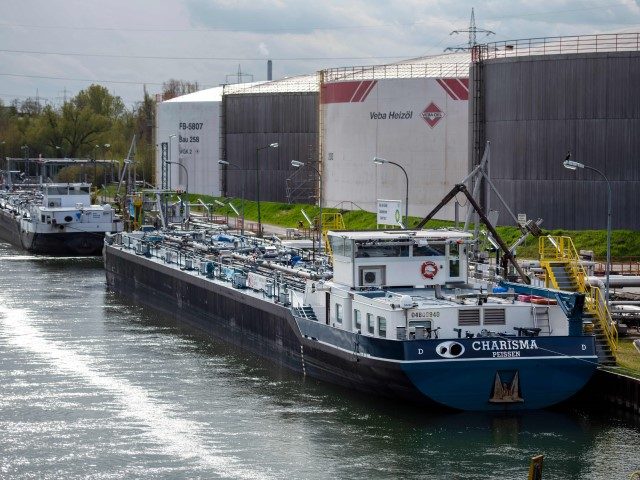Despite ongoing sanctions against Russia since it invaded Ukraine, Vladimir Putin is raking in billions on fossil fuel sales. The Finland-based Centre for Research on Energy and Clean Air released a study that said Russia has garnered about $66 billion since the war began.

A Ukrainian serviceman walks by a deactivated Russian military multiple rocket launcher on the outskirts of Kharkiv, Ukraine, Friday, Feb. 25, 2022. (Vadim Ghird/AP)
“Fossil fuel exports are a key enabler of Russia’s military buildup and brutal aggression against Ukraine,” the introduction of the study states. “Major oil firms, power utilities and industries continued to buy Russian fossil fuels: we detected deliveries to facilities or with ships linked to oil companies Exxon Mobil, Shell, Total, Repsol, BP, Lukoil, Neste and Orlen and Trafigura; power utilities RWE, KEPCO, Taipower, Tohoku Electric Power, Chubu Electric Power, TEPCO, Kyushu Electric Power; and industrial companies Nippon Steel, POSCO, Formosa Petrochemical Corporation, Mitsubishi, Hyundai Steel, Sumitomo and JFE Steel.”
The study says that one-quarter of Russiaʼs fossil fuel shipments are arriving in just six European Union ports — Rotterdam (Netherlands), Maasvlakte (Netherlands), Trieste (Italy), Gdansk (Poland) and Zeebrugge (Belgium).
The largest importers of Russian oil are, in order from largest importer, Germany, Italy, China, Netherlands, Turkey, and France.
The study included the fact that Russian exports are taking a hit:
Even in the absence of import bans, avoidance of Russian supplies is reducing seaborne imports. Oil deliveries from Russia to foreign ports fell by 20% in the first three weeks of April, compared with the January-February period before the invasion.
The centre’s recommendations in the study, however, reveal that they are anti-fossil fuels no matter where they come from:
Create a plan to replace Russian fossil fuels with clean (non-fossil) energy, energy efficiency and energy savings measures as soon as possible. This will be far more impactful than just re-arranging the global trade flows of fossil fuels, and will have far greater economic, health and national security benefits.
Follow Penny Starr on Twitter

COMMENTS
Please let us know if you're having issues with commenting.